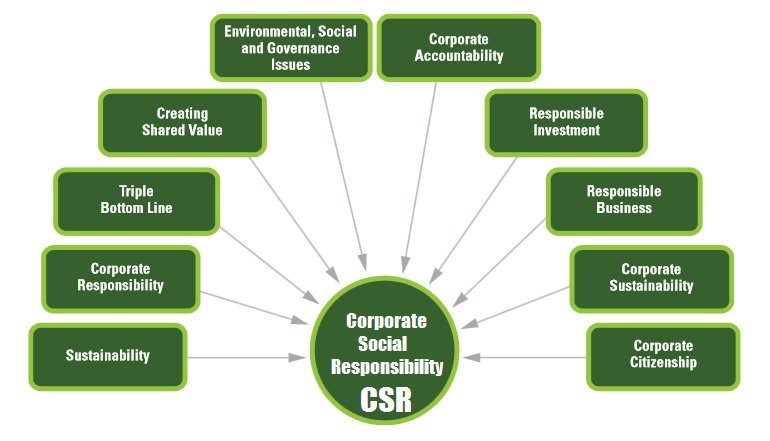Corporate social responsibility (CSR) is a broad term that refers to a company’s efforts to operate in a way that is beneficial to society. This can include a variety of activities, such as environmental sustainability, ethical labor practices, and community investment.
There are many reasons why companies choose to engage in CSR. Some do it out of a genuine desire to make a positive impact on the world. Others see it as a way to improve their public image or attract and retain customers and employees. Still others believe that CSR can lead to long-term business benefits, such as reduced costs and increased innovation.
Whatever the motivation, CSR is becoming increasingly important to businesses of all sizes. A 2019 survey by the World Economic Forum found that 87% of CEOs believe that CSR is important to their company’s success.
There are many different ways for companies to engage in CSR. Some common activities include:
- Environmental sustainability: Companies can reduce their environmental impact by using less energy and water, reducing waste, and investing in renewable energy.
- Ethical labor practices: Companies can ensure that their employees are treated fairly and that their products are made in a safe and ethical manner.
- Community investment: Companies can give back to their communities by donating money or time to local charities, schools, or other organizations.
CSR can be a complex and challenging undertaking. However, it can also be a rewarding one. Companies that engage in CSR can make a positive impact on the world, improve their public image, and attract and retain customers and employees.
Here are some examples of how companies are successfully engaging in CSR:
- Ben & Jerry’s: This ice cream company is known for its commitment to social justice. It has a long history of supporting environmental causes, fair trade practices, and human rights.
- Toms Shoes: This shoe company gives away a pair of shoes for every pair that is sold. It has helped to provide shoes to millions of people in need around the world.
- Nike: This sportswear company has a long history of labor controversies. However, in recent years, it has made significant efforts to improve its labor practices. It has also invested in environmental sustainability initiatives.
CSR is not without its challenges. Companies can face criticism if their CSR efforts are seen as being motivated by self-interest rather than a genuine desire to do good. They can also face challenges in implementing CSR initiatives, such as resistance from employees or difficulty in measuring the impact of their efforts.
Despite the challenges, CSR is a growing trend. More and more companies are recognizing the importance of operating in a way that is beneficial to society. As CSR becomes more mainstream, it is likely that we will see even more companies engaging in this important work.
Here are some tips for companies that are considering engaging in CSR:
- Start by setting clear goals. What do you hope to achieve through your CSR efforts? Do you want to improve your environmental impact, support social justice, or give back to your community?
- Be transparent about your CSR efforts. Let your customers, employees, and other stakeholders know what you are doing and why you are doing it.
- Measure the impact of your CSR efforts. This will help you to see how your efforts are making a difference and to make improvements where necessary.
- Get your employees involved. CSR should be a company-wide effort. Encourage your employees to get involved in CSR activities and to share their ideas.
- Partner with other organizations. CSR is more effective when it is done in collaboration with other organizations. Partner with local charities, schools, or other organizations to make a bigger impact.
CSR is a complex and challenging undertaking, but it is also a rewarding one. By engaging in CSR, companies can make a positive impact on the world, improve their public image, and attract and retain customers and employees.


